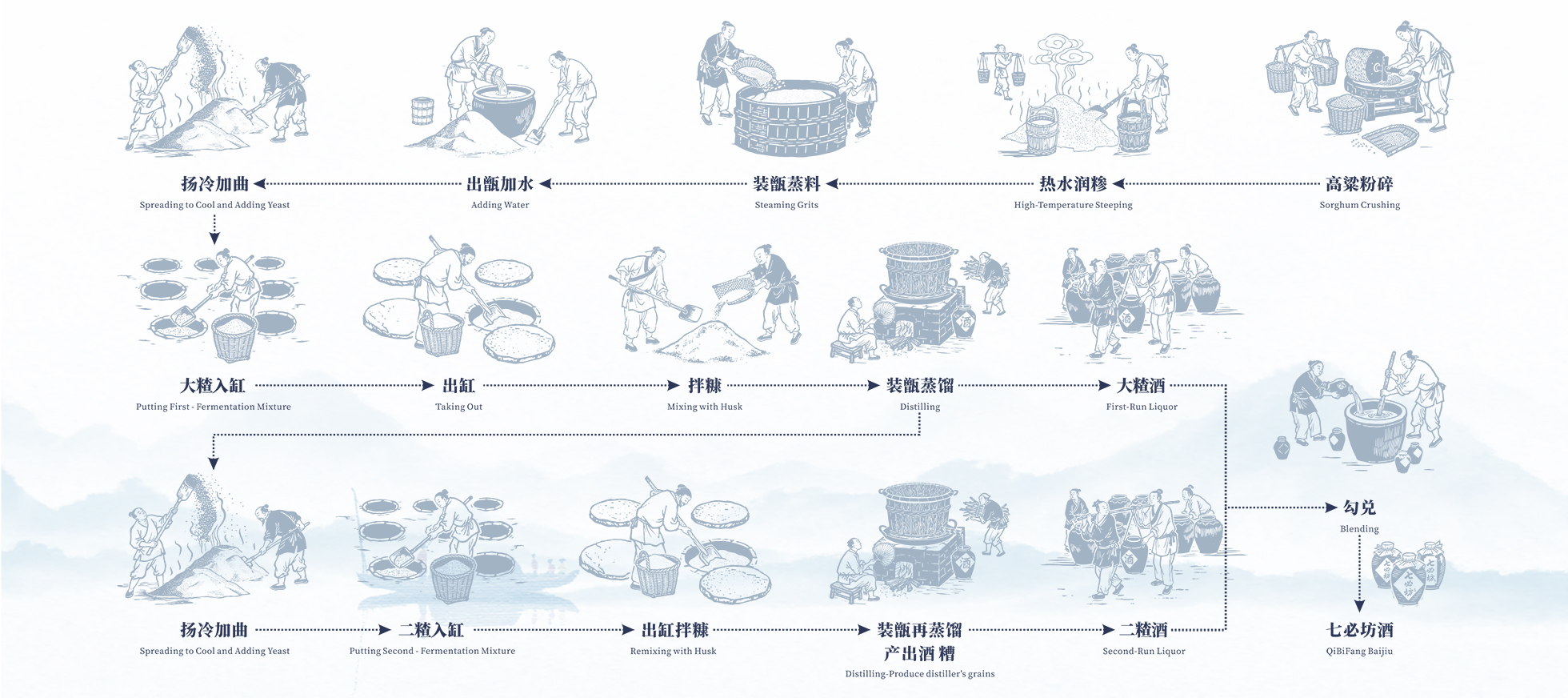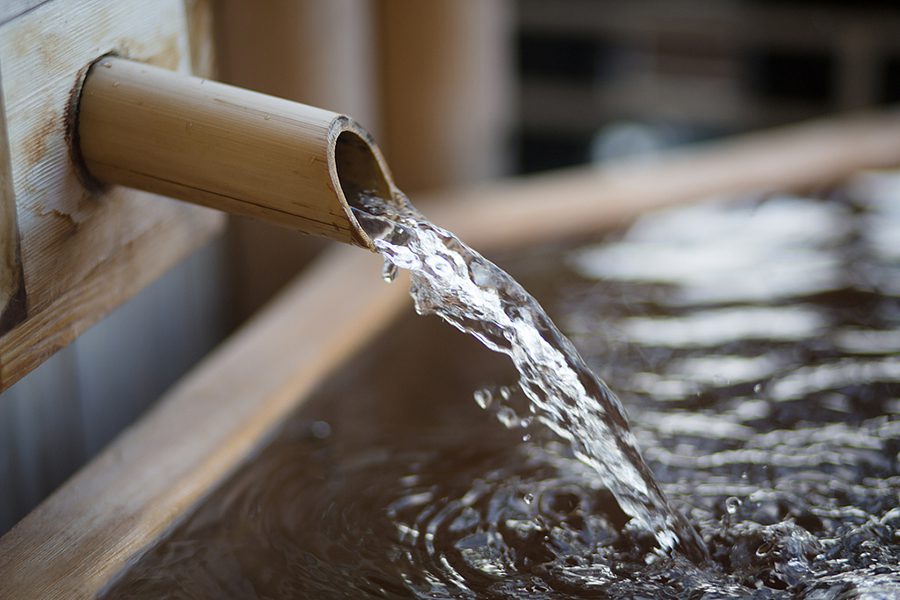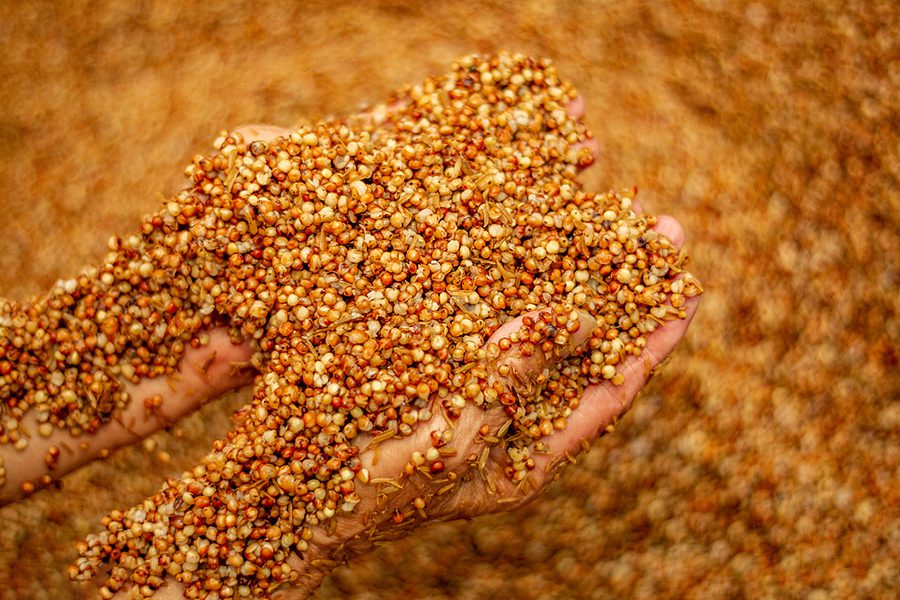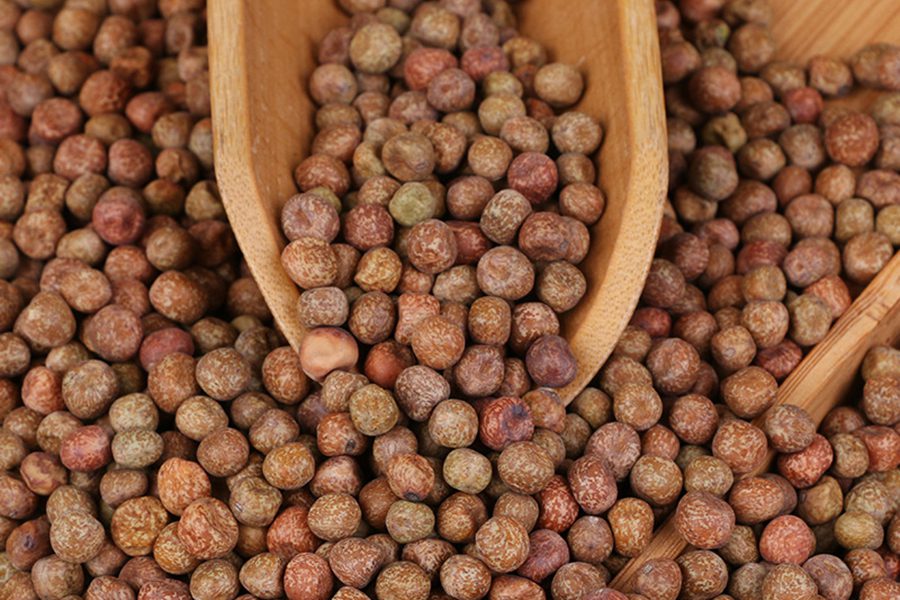"Seven Musts Brewing Technique" of Chinese Baijiu

» People must be professional
It means that people are the soul of Chinese baijiu. Brewing technicians treat every process of brewing technology with a rigorous craftsman spirit, and brew the most beautiful baijiu with precision.
» Qu must be at the right time
It means that qu is the bone of baijiu. Every link of Qibifang qu production accurately controls the temperature and time to allow beneficial microorganisms to grow and reproduce optimally.
» Utensils must be clean
It means that utensils are the body of Chinese baijiu. The whole process of brewing attaches great importance to the cleaning of utensils, strictly prevents the invasion of miscellaneous flavors and bacteria, and ensures the sweet and fragrant characteristics of Qibifang baijiu.
» Fire control must be precise
It means that fire is the breath of Chinese baijiu. The fermentation temperature of Qibifang baijiu mash is strictly controlled according to the principle of “slow rise in the front, full in the middle, and slow fall in the back”. The wine mash is steamed and distilled slowly with low heat.
» Water must be sweet
It means that water is the blood of baijiu. The sweetest, highest quality and purest water from the sacred well of Xinghua Village is used to brew the most mellow, sweet and fragrant Qibifang baijiu in China.
» Grain must be real
It means that grain is the meat of baijiu. Qibifang people use good grain to brew good baijiu, and select high-quality sorghum with full seeds and high starch content to ensure the quality of raw materials.
» Vat must be wet
It means that the vat is the skin of Chinese baijiu, which ensures the excellent fermentation environment of baijiu, strictly controls the humidity of the pottery pot and the water temperature of the mash to ensure uniform fermentation of the mash.
History of the "Seven Musts Brewing Technique"
In the spring of 1933, Fang Xinfang, a brewing and microbiology expert, traveled from Tianjin to Xinghua Village for an inspection. This was Fang Xinfang’s first contact with Chinese baijiu, and also the first “field exploration” of Chinese liquor in the field of microorganisms. He was greeted by Yang Deling, the chief shopkeeper of Fenjiu.
The 27-year-old Fang Xinfang and the 74-year-old Yang Deling spent more than half a month analyzing and testing hundreds of research data on Fenjiu brewing, and made a comprehensive summary of the brewing process of Fenjiu. These are the famous “Seven Musts” of Fenjiu brewing, namely ” people must be professional, qu must be at the right time, Utensils must be clean, fire control must be precise, water must be sweet, grain must be real, and pot must be wet.” It is also called “Seven Musts Brewing Techniques”.
The proposal of “Seven Musts Brewing Techniques” comprehensively summarizes and highly summarizes the essence of the liquor produced in Xinghua Village, and is a valuable intangible cultural heritage.
Raw Materials for Chinese Baijiu Production
Zixia mountain spring
Naturally sweet water, crafting baijiu with crystal clarity, aromatic sweetness, and a lingering finish that elevates the spirit.

"Yibazhua" sorghum
Thin husk, high starch, ~1.5% tannins. Boosts yield and forms signature aromatics polyphenols critical for Fen-flavor baijiu.

Gansu mottled peas
Cool-natured, fuels microbial growth in qu making. Regulates fermentation temperatures (slow-start, steady-rise, gentle-fall), imparting unique fragrance.

Barley
Rich in vitamins/growth factors—nature’s microbial medium. Porous qu bricks enable rapid heat control: quick ignition, swift cooldown.

Six Sacred Rules of Cellaring
Rules 1: Pristine Environment, Immaculate Storage;
Rules 2: True Brew, Pure Grain Promise;
Rules 3: Three Years Patience, Zero Barrel Disturbance;
Rules 4: Double Fermentation, Twice the Depth;
Rules 5: Guarded Perfection: Climate-Locked Sanctuary;
Rules 6: Vessels of Legacy: Handpicked Terracotta.
